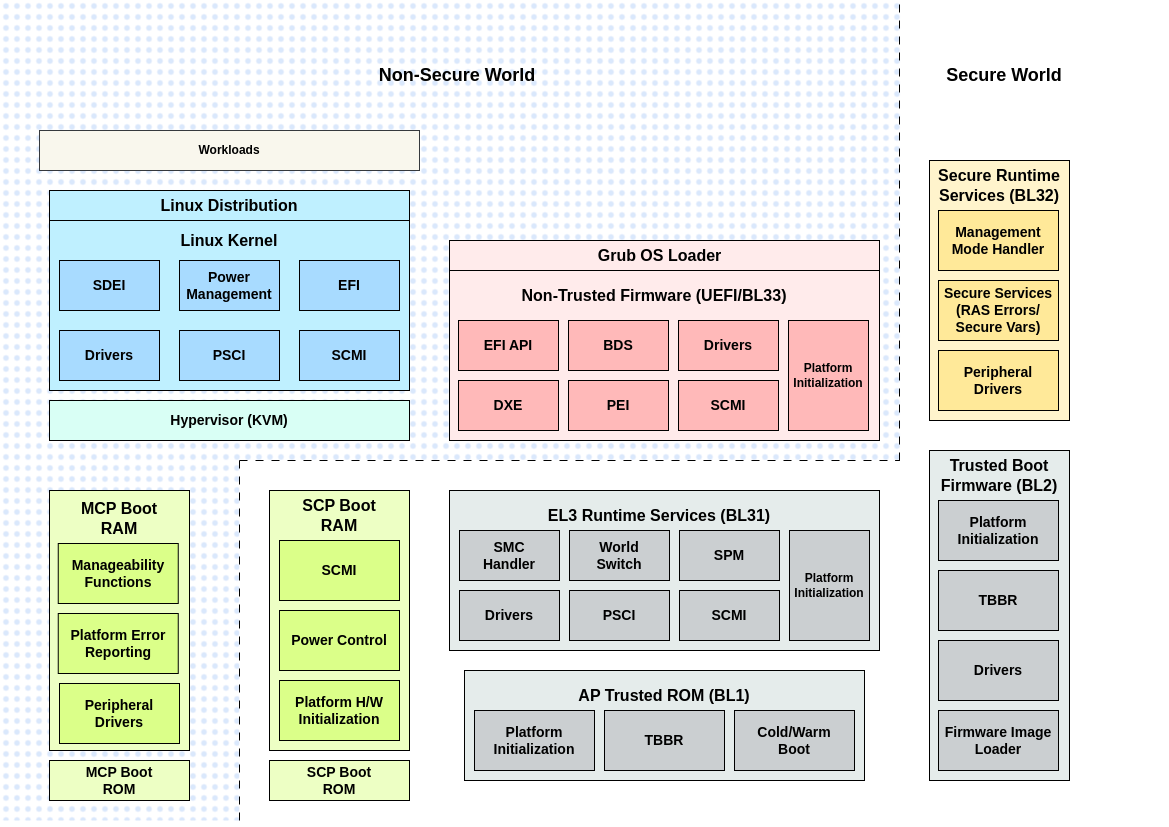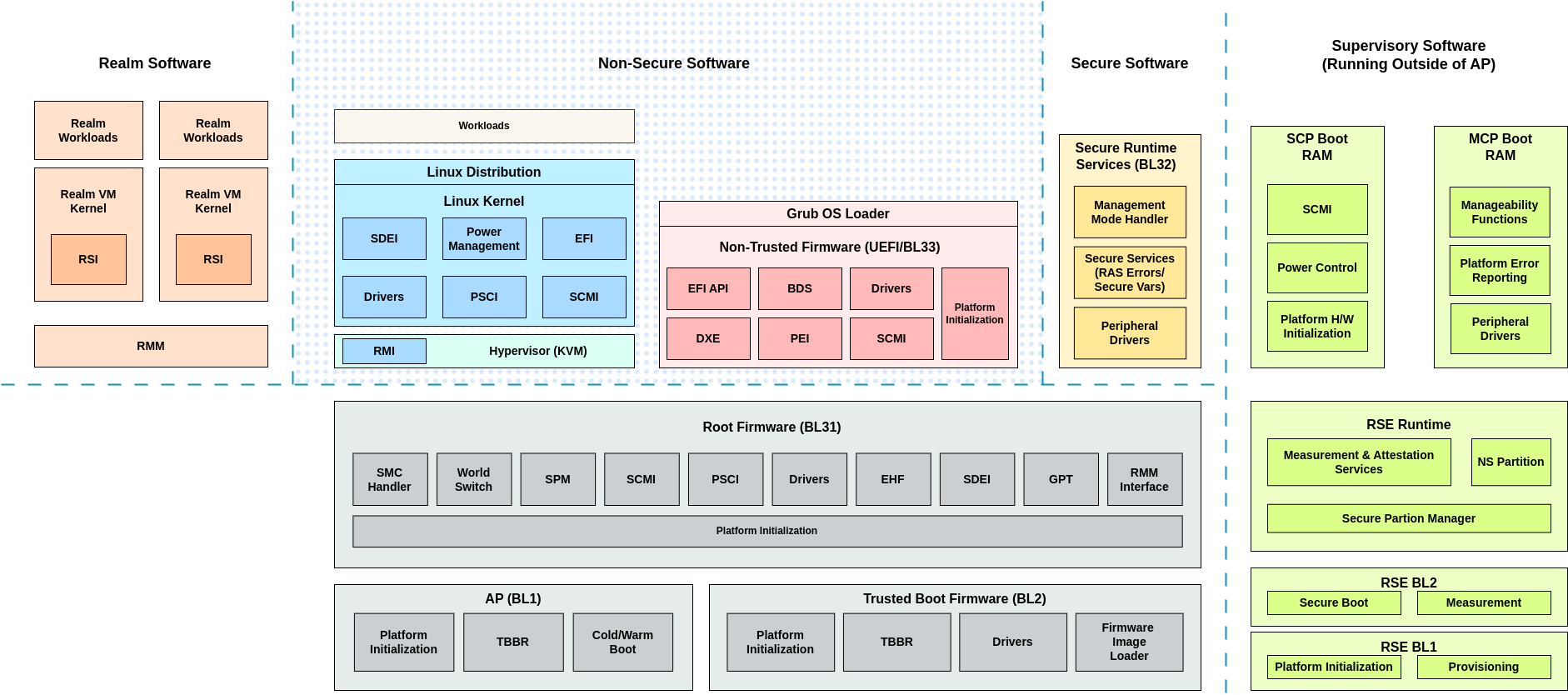Software Stack
The Neoverse software stack integrates multiple software components to provide a reference implementation of a software solution that can be used demonstrate various capabilities of the respective platform.
A typical software stack is illustrated in Fig. 1.

Fig. 1 High-level software illustration of a Neoverse Reference Design.
Some reference designs support the Realm Management Extension (RME), and their software stack is ilustrated in Fig. 2.

Fig. 2 High-level software illustration of a Neoverse Reference Design with RME.
The following sections list the various software components that are included the Neoverse software stack.
MSCP Firmware
Neoverse reference design platforms include a System Control Processor (SCP) sub-system and a Manageability Control Processor (MCP) sub-system. The SCP sub-system is tasked with the management of system clocks, power control, configuring the system interconnect, memory controllers, PCIe controllers and many other functionalities. The MCP sub-system is tasked with the management of communications with an external Baseboard Management Controller (BMC). The firmware executed by the SCP and MCP processors is sourced from the SCP-firmware open-source project.
Trusted Firmware
Trusted Firmware-A (TF-A) software component provides a reference open-source implementation of a secure monitor executing at EL3 exception level. It implements various Arm interface standards including the Power State Coordination Interface (PSCI), Trusted Board Boot Requirements (TBBR), SMC Calling Convention, System Control and Management Interface and others. The trusted firmware executes in various stages - Boot Loader stage 1 (BL1) AP Trusted ROM, Boot Loader stage 2 (BL2) Trusted Boot Firmware, Boot Loader stage 3-1 (BL3-1) EL3 Runtime Firmware, Boot Loader stage 3-2 (BL3-2) Secure-EL1 Payload (optional) and Boot Loader stage 3-3 (BL3-3) Non-trusted Firmware.
EDK2
EFI Development Kit 2 (edk2) is a firmware development environment for the UEFI and PI specifications. UEFI is a specification that defines an interface between the firmware and an Operating System (OS). UEFI defines the firmware interfaces and boot services that are required for booting a standards-based OS. UEFI also defines run-time services, for example, time, variable that an OS can invoke at runtime. The reference design platform stack integrates both the edk2 and edk2-platforms open-source projects to support an implementation of EFI API for the platform.
Linux Kernel
Linux kernel is used as the host operating system kernel for the reference design platforms. ACPI tables are used to describe the platform to the linux kernel. All the capabilities of the linux kernel are used to demonstrate the various functionalities of the platform software including power management, device assignment, RAS and many others.
Other software components
The platform software stack uses the following additional software components to provide an integrated software solution for the Neoverse reference design platforms.